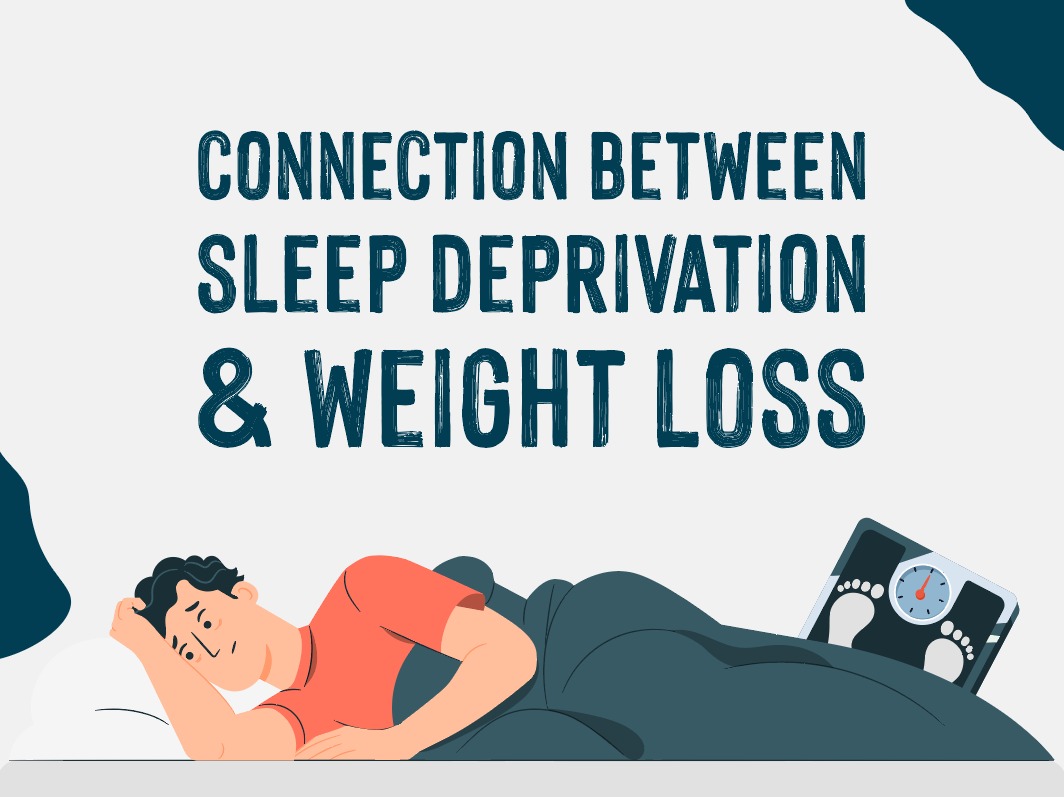
When you think about weight loss, diet and exercise likely come to mind first. But there’s a critical third pillar that is often neglected: sleep. Skimping on sleep can single-handedly undermine your weight management efforts, no matter how clean your diet or how intense your workouts. Understanding the powerful physiological connection between sleep and weight is key to achieving your wellness goals. Here’s why prioritizing rest is non-negotiable.
Hormonal Havoc: Ghrelin and Leptin
Sleep deprivation directly disrupts the hormones that regulate your appetite.
- Ghrelin (The “Hunger Hormone”): This hormone is produced in the stomach and signals hunger to the brain. When you don’t get enough sleep, your body produces more ghrelin.
- Leptin (The “Satiety Hormone”): This hormone is produced by fat cells and tells your brain that you’re full and have enough energy stored. Sleep restriction causes leptin levels to drop.
The result of this hormonal double-whammy? You feel hungrier and less satisfied after eating, leading to increased calorie intake, particularly from high-carbohydrate and high-fat foods.
Increased Cravings and Poor Food Choices
Lack of sleep doesn’t just make you eat more; it makes you crave the wrong foods. Sleep loss activates the endocannabinoid system in your brain—the same system targeted by marijuana, which is known to stimulate appetite. This chemical signal enhances the pleasure you get from eating, especially from sugary and fatty junk foods. When you’re tired, your brain’s reward centers are more stimulated by food, and your prefrontal cortex (responsible for willpower and decision-making) is impaired. This combination makes it incredibly difficult to resist unhealthy choices.
Slower Metabolism and Muscle Loss
Sleep is crucial for your metabolic health. Chronic sleep deprivation can lead to insulin resistance, a condition where your body’s cells don’t respond well to insulin, leading to higher blood sugar and increased fat storage, particularly around the abdomen.
Furthermore, when you’re trying to lose weight through calorie restriction, not sleeping enough can cause you to lose weight from the wrong place. In studies, sleep-deprived dieters lost the same amount of weight as well-rested dieters, but they lost more lean muscle mass and less fat. Preserving muscle is critical because it’s metabolically active tissue that helps you burn more calories at rest.
Less Energy for Exercise
This one is straightforward: when you’re tired, you have less energy and motivation to move. You’re more likely to skip your workout or put in less effort. You also may move less throughout the entire day (a decrease in Non-Exercise Activity Thermogenesis, or NEAT), further reducing your total daily calorie burn.
How Much Sleep Do You Need?
For most adults, the sweet spot for optimal health and weight management is 7-9 hours of quality sleep per night. “Quality” means uninterrupted sleep that allows you to cycle through all the important stages, including deep sleep and REM sleep.
Making Sleep a Priority
If weight loss is your goal, look at your sleep habits with the same seriousness as your meal plan. Establish a consistent sleep schedule, create a relaxing bedtime routine, and optimize your sleep environment. Viewing sleep not as a luxury, but as an essential component of your metabolic health, is the mindset shift that can make all the difference. By giving your body the rest it needs, you balance your hormones, sharpen your willpower, and set yourself up for success.
